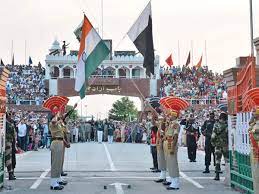CELEBRATING THE POWER OF THEATRE ACROSS THE GLOBE

World Theatre Day, observed annually on March 27th, is a celebration of the rich cultural and social significance of theatre in our lives. It is a day dedicated to recognizing the contributions of theatre to society, highlighting the creative expression of artists, and promoting the universal language of performance. In 1961, the International Theatre Institute (ITI), a worldwide organization that serves as the primary global network for the performing arts, established World Theatre Day as an annual event. Since then, it has grown into a key occasion to reflect on the importance of theatre and the performing arts in fostering understanding, dialogue, and connection between people of different cultures and backgrounds.
THE ORIGINS AND PURPOSE OF WORLD THEATRE DAY
The origins of World Theatre Day trace back to the founding of the International Theatre Institute in 1948, a global network that seeks to promote the development of theatre and the performing arts. The idea behind World Theatre Day was to provide an opportunity for people to come together and reflect on the value of theatre in all its forms, from dramatic performances to experimental works. It serves as a reminder of the power of storytelling, live performance, and artistic expression to foster empathy, challenge ideas, and provoke thought in a way that other forms of media may not.
Each year, a prominent figure from the world of theatre is selected to deliver the World Theatre Day message. This individual, chosen by the International Theatre Institute, is tasked with sharing a powerful statement that speaks to the role of theatre in society, how it can be used to address contemporary issues, and how it bridges divides between cultures, nations, and peoples. The message is translated into various languages and disseminated across the globe, creating a universal platform for discussing the importance of theatre in the modern world.
THE IMPORTANCE OF THEATRE IN SOCIETY
Theatre has been an integral part of human culture for millennia. From the ancient Greek amphitheaters to the sophisticated playhouses of Shakespearean England, theatre has always been a space where ideas, emotions, and stories are brought to life through the collaboration of actors, directors, designers, and audiences. It holds a unique place in society as an art form that is both timeless and constantly evolving. Theatre has the ability to engage and provoke, making it a powerful tool for social and political commentary.
One of the most significant aspects of theatre is its ability to reflect society. Through the medium of performance, theatre can mirror the current issues of the day, whether they be political, social, or cultural. For instance, plays like Arthur Miller's The Crucible or Bertolt Brecht's The Threepenny Opera have stood the test of time because they delve into the human condition and tackle subjects like corruption, power, and morality that remain relevant across generations.
Furthermore, theatre offers an inclusive space for dialogue and understanding. The experience of watching a play allows individuals to step into the shoes of others, whether they are exploring a character's struggles, confronting historical events, or grappling with universal themes. This fosters empathy, allowing audiences to engage with issues they may not encounter in their everyday lives. Theatre also serves as a platform for underrepresented voices, providing a stage for marginalized groups to share their stories and advocate for social change.
THEATRE AS A TOOL FOR CULTURAL EXCHANGE AND UNDERSTANDING
World Theatre Day plays a crucial role in promoting international collaboration and cultural exchange through the arts. Theatre can transcend national borders and linguistic differences, bringing together people from different corners of the world through the universal language of performance. For instance, a play performed in one country can be translated, adapted, and performed in another, bridging the gap between diverse cultures and creating a global network of shared artistic expression.
International festivals, theatre tours, and cross-cultural collaborations allow for the exchange of ideas and styles of performance. This fosters an environment of mutual respect and understanding, enabling artists to learn from each other and expand their creative horizons. For example, theatre companies from different parts of the world often collaborate on joint productions or share knowledge through workshops and masterclasses. This process enriches the global theatre community and contributes to the ongoing evolution of the art form.
The impact of theatre is not limited to the stage; it extends to the communities in which it is produced and experienced. Theatre can act as a catalyst for social change by raising awareness of pressing issues such as human rights, gender equality, climate change, and political freedoms. Many contemporary theatre productions tackle global challenges and aim to inspire audiences to take action and make a difference. World Theatre Day reminds us of the collective power of the performing arts to inspire positive change and unite people across the globe.
THEATRE'S ROLE IN EDUCATION AND PERSONAL DEVELOPMENT
Another key aspect of World Theatre Day is its emphasis on the educational value of theatre. Theatre not only entertains but also teaches valuable life skills, including communication, teamwork, and problem-solving. Many educational systems around the world incorporate drama and theatre studies into their curricula, recognizing that the process of creating and performing a play helps students build confidence, develop critical thinking, and enhance their creativity.
Moreover, participating in theatre—whether as an actor, director, or designer—allows individuals to explore different perspectives, hone their emotional intelligence, and express themselves in ways that might not be possible through other means. Theatre fosters an appreciation for collaboration, as every performance requires the combined efforts of multiple people working together toward a common goal. This collaborative spirit extends beyond the theatre itself and can have a lasting impact on personal development and social interactions.
You may like post

FROM SACRIFICE TO RESURRECTION
Understanding Good Friday and Easter Sunday

THE MOST BREATHTAKING TRAIN RIDES TO TAKE THIS FALL
Explore Autumn’s Best Rail Adventures Around the Globe







